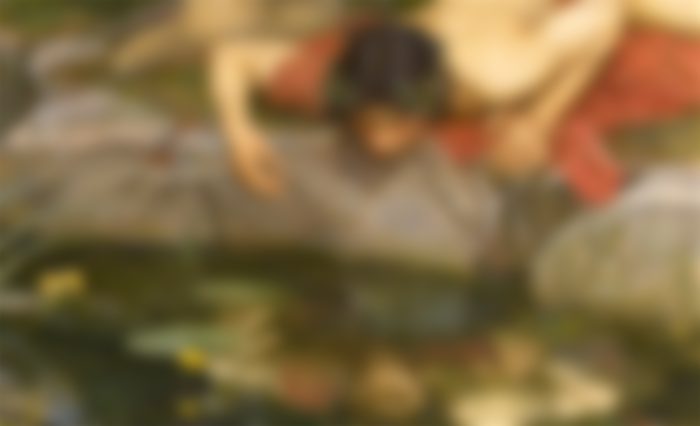The Self-Lover/Narcissus-Greek Mythology
Narcissus is a character in Greek mythology who falls in love with his reflection in the water because of his incredible handsomeness. Even the beautiful Eho, the nymph, cannot stop him from melting day by day in line with his self-indulgence. The name of Narcissus was given to those who admired the flower and exaggeratedly himself.

Image by: https://pin.it/45NDKjP from Pinterest
Narcissus & Its Reflection
Narcissus was born in Thespiae in Boeotia, the son of the river god Kephissos and the nymph Liriope. The oracle Teiresias one day prophesies to Narcissus' mother that her son will have a long life "if he never knows himself". When the handsome young man reached his teenage years, he has yet to find anyone who can make his heart tremble, although he has left behind many sad and heartbroken girls and a couple of boys.
Then, one day, he accidentally meets his reflection in a puddle and falls in love with himself, thus living unrequited love to the fullest. Of course, this one-sided relationship leads nowhere and Narcissus can't help himself from its reflection, he is helplessly melting day by day and eventually dies of hunger and thirst. His corpse (or, in some versions, blood from the self-inflicted stab wound) transforms into flowers named after him, achieving a kind of immortality.
Narcissus & Echo
Another version of the legend is found in the work of the Roman writer Ovid. According to the story, Narcissus is handsome as ever, but cruelly rejects Echo. The beautiful nymph Ekho, heartbroken day after day, melts away from her pain, leaving only the echo of her voice. Because of this indifference, Narcissus is killed. In another version, Hera punishes her for distracting Echo with tales of her husband, Zeus, who had an affair with the mountain fairies, while sneaking away from Mount Olympus.
This explains why Ekho can only repeat what others have told him. One day, while hunting deer in the forest, Narcissus encounters Echo in his cursed form. After a few redundant words and phrases, Ekho tries to hug Narcissus but is rejected and quickly runs away. Eho also melts away in the forest, until only his voice remains.
Ameinias & Artemis
Other stories that diverge from the original legend of Narcissus, as in the Echo story, roughly reject their suitors. One of Narcissus's most ardent admirers was Ameinias, but Narcissus sent him a sword to kill himself, and he did.
Ameinias cursed the sword describing his unrequited love and asked the gods to curse Narcissus. Artemis responded to his request—perhaps because she disliked rival hunters—and made Narcissus fall tragically in love with her own reflection.
Unlike Greek artists, the Roman version of Narcissus and Echo was a very popular subject in Roman art and appears in nearly 50 murals in Pompeii alone. The Renaissance shed light on Narcissus;
The story involving light and reflection proved irresistible for Caravaggio, who captured the legend in his famous oil painting from the 16th century AD. Finally, Narcissus's name has been given in psychoanalysis to a state of self-indulgence, too much preoccupation with appearance.
